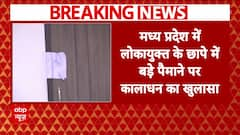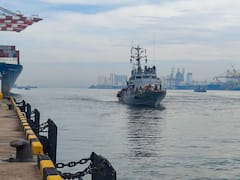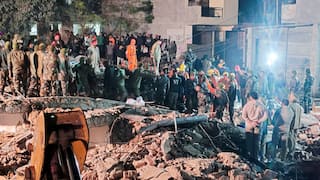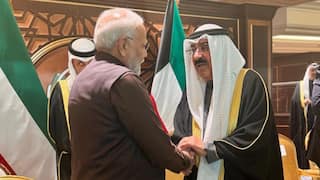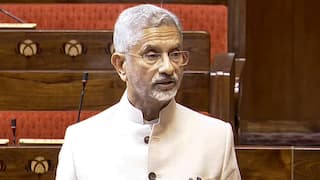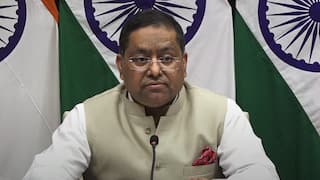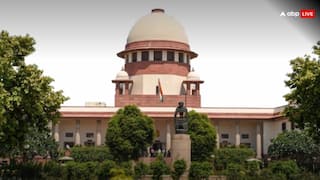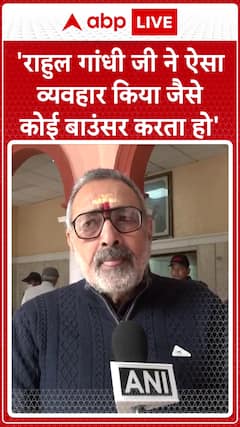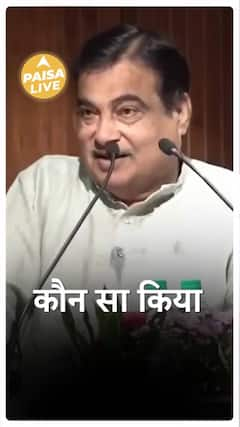How India Got G20 New Delhi Leaders’ Declaration Clinched Despite Stiff Differences
ABP Live has learnt that India changed the draft joint statement, which was issued after the Sherpa track earlier this week, at the ‘last moment’ by upholding Ukraine’s ‘territorial integrity and sovereignty’ aspect. West did not want to ‘let down’ Global South.

G20 New Delhi Leaders’ Declaration: India was able to clinch the G20 New Delhi Leaders’ Declaration because it agreed to give specific mention to Ukraine’s “territorial integrity and sovereignty” even as Russia was “isolated” while China chose to support India and others keeping in mind the larger aspect of the development of the Global South, ABP LIVE has learnt.
Prime Minister Narendra Modi Saturday said India was able to garner “100 percent consensus” of the G20 member countries on the joint statement, a draft of which was earlier rejected by the West, especially the European Union (EU), at the end of the G20 Sherpa track, which concluded on September 7.
However, on September 8, on the eve of the G20 Summit, New Delhi is believed to have forwarded an amended version of the text to all members that had “change in language” particularly on Ukraine, and that set the ball rolling even though the criticism against Russia was not “as sharper as the European Union would have wanted”, a senior European diplomat told ABP LIVE.
According to the diplomat, the adoption of the G20 New Delhi Leaders’ Declaration also showed “weakness of China and isolation of Russia” and hence whether or not the criticism against Russia was strongly worded or not in the statement “did not matter” for the EU or for the United States.
The fact that New Delhi could change the joint statement at the eleventh hour is being hailed as “masterstroke” by many within the diplomatic community of the New Delhi, who believe such a move would have been “impossible” had India allowed Ukraine President Volodymyr Zelenskyy to address the G20 Summit, something that proved to be a hurdle at the G20 Summit in 2022 held in Bali, Indonesia.
“Zelenskyy’s presence, even if virtual, would have led to the G20 split into ‘18+2 format’ in which case there would have been clear division between Russia and China on one side and rest of the G20 member countries on the other,” said another diplomat.
The New Delhi declaration states: “In line with the UN Charter, all states must refrain from the threat or use of force to seek territorial acquisition against the territorial integrity and sovereignty or political independence of any state. The use or threat of use of nuclear weapons is inadmissible.”
The statement also reiterated, “Today’s era must not be of war.” Prime Minister Narendra Modi had said this to Russian President Vladimir Putin in Samarkand, Uzbekistan, on the margins of the Shanghai Cooperation Organisation (SCO) summit in 2022.
ALSO READ | Green Development Pact To Digital Public Infra: India Lists 'Key Achievements' As G20 President
India Worked Out A ‘Compromise Proposal’
French diplomatic sources called the G20 New Delhi Declaration “very satisfactory” that will help in building “consensus for the future” as India has taken on board the inputs from every country in order to “work out a compromise proposal”.
“The Indian Presidency wanted to see a language of consensus emerge … We had to refer to the United Nations texts, which are indeed mentioned and then we had to affirm a few obvious points for us, but which are not necessarily obvious for everyone, i.e. that a war of territorial conquest is unacceptable, that the sovereignty and territorial integrity of States must be respected, and that a just and lasting peace must respect these principles,” said a source.
In order to achieve a language of consensus on a subject as divisive as Ukraine, they had to reaffirm what was said in Bali, by “recalling” the Bali conversation, the sources added.
According to the French diplomatic sources, “All this is well incorporated in the text and, as was our main objective at this summit, enables us to look ahead to what should be the solution for a just and lasting peace at the end of the war in Ukraine.”
Earlier this month, President Zelenskyy and French President Emmanuel Macron held a phone call where defence needs of the Ukrainian army for the further de-occupation of the territory of Ukraine was discussed.
ALSO READ | 'Great Success For India's G20 Presidency': Top Leaders On Adoption Of Delhi Declaration At G20 Summit
‘Didn’t Want To Let India, Global South Down’
The issue of supporting the Global South and its development was also one of the prime reasons why the West, especially the EU, did not want the G20 “to fail” and risk creating “more gap between Europe and the developing countries”.
“We could not let India down. We could not let Global South Down. We need to be relevant to the Global South and also politically that Russia and China was not on their highest level helped. China literally had no choice, Europe cannot leave India behind, we have to look at making progress in the G20 and also give priority to the developing economies,” the second diplomat quoted above said, adding that the fact that Russia’s mention was missing “made little difference”.
The diplomat said as long as the G20 could agree to a commitment that hostilities have to stop and Ukraine has to be given back its territory, “the matter is solved … We cannot let the G20 process to stall”.
Subscribe And Follow ABP Live On Telegram: https://t.me/officialabplive
Trending News
Top Headlines













